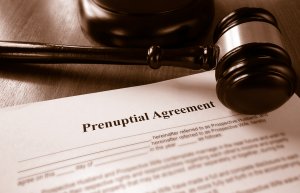Divorce Lawyers London
London Divorce Solicitors
If you are contemplating a divorce you need to know that you have the very best divorce solicitors in London on your side. Osbornes Law are recognised as leading divorce lawyers. Read on for more information on how we can help you and our expert lawyers.

“Osbornes Law have a very broad family practice which does all areas of family law at a high level. They have an excellent practice; they are top quality across the board.”
“A family team that is able to offer the highest level of expertise across the family law spectrum from high-net-worth finances through to care proceedings and children matters.”
If you and your partner are considering getting divorced, our divorce lawyers will support you through this difficult time with patience and understanding. Our team can guide you through the entire divorce process including applying for a divorce, responding to divorce proceedings, agreeing on a financial settlement and making arrangements for children.
We know that divorce is an emotional time for couples, so we take time to understand you and what you want to achieve, helping to protect your interests and those of your loved ones, ensuring that every detail is taken care of. We’ll make your divorce as fast, uncomplicated and stress-free as possible allowing you to quickly move on with your life.
Our divorce lawyers are highly skilled at resolving complex financial matters through mediation and collaboration helping to keep your divorce out of the courts wherever possible, saving you time, money and a lot of unnecessary conflict.
Our divorce law services
We can help you with all aspects of divorce, including:
- Applying for a divorce
- Responding to divorce proceedings
- Agreeing on a divorce settlement
- Making arrangements for children
- Resolving any other issues connected to your divorce
Speak to a divorce lawyer near you to discuss your requirements.
Our divorce financial settlement services
Our divorce lawyers will guide you through the process of agreeing on a divorce financial settlement. In the majority of cases, we will able to help you agree on a divorce settlement voluntarily through mediation, saving you time, money and stress.
The assets that are taken into account in a financial settlement as part of the divorce include:
- the family home and any other property
- savings and investments
- joint bank accounts
- vehicles
- jointly owned business assets
- Pensions
Arrangements for children during divorce
Deciding what will happen to your children is one of the most contentious issues to resolve during a divorce. We will help to make the process as amicable as possible which is ultimately in the best interests of the children and the parents.
We will help you agree on arrangements for:
- where your children will live
- the amount of contact each parent will have with their children
- how they will be supported financially
Options for non-confrontational divorce
The majority of divorce cases don’t go to court. Instead, we find it best to resolve issues with a collaborative approach through negotiation via us your solicitors or through mediation, collaborative law, Private Finacial Dispute Resolution or arbitration. There is no one option that will suit all families because each relationship is different. However, non-confrontational divorce generally makes it faster, cheaper and less acrimonious than going to court and it has a far higher success rate.
The most common option is the family mediation process which helps you to explore finding solutions to separation and divorce in a constructive and supportive way. Our divorce lawyers are Resolution trained mediators who are trained to help resolve disputes over all issues faced by separating couples including specific issues such as financial settlements and arrangements for children. Our mediators will help you and your partner to identify issues that you can’t agree on and help you to reach an agreement.
Each family is unique and at your initial consultation, we will discuss your circumstances, and identify what is most important to you and your desired outcome. We will advise you on the law and how best to achieve the outcomes you seek. If you have a prenuptial or postnuptial agreement, we will need to review this.
Whatever forum you choose, you can rest assured that we will negotiate strenuously on your behalf. If the divorce does proceed to court, our highly skilled advocates will represent you robustly and we have a track record of excellent results for our clients. We have particular experience in high-net-worth divorces.
What is the process for getting divorced?
- Check that you are eligible to get a divorce
- Decide if you want to make a joint application or on your own
- Apply online or by post (there’s a £593 fee to apply for a divorce)
- The Respondent has 14 days to complete and return the Acknowledgement of Service (AOS) form to the court.
- Wait for a mandatory 20-week reflection period
- Apply for a conditional order
- The court issues a Certificate of Entitlement, confirming the date your Conditional Order
- Wait six weeks and one day before applying for a Final Order
- Apply for the Final Order
- Final Order granted by the Court
How long does a divorce take?
On average in England and Wales, the divorce process takes between six-eight months. This takes into account the need to sort out issues with money, property and children. Because of the 20-week cooling-off period, a no-fault divorce will take a minimum of six months.
What are my rights in a divorce?
You have some basic rights enshrined in law regarding divorce. You will be legally entitled to a divorce provided you have been married for at least one year, meet the jurisdiction requirements. We can advise you on your specific circumstances and how best to proceed.
If there are children of the family then The Children and Families Act 2014 introduced the presumption that, unless the contrary is shown, the continued involvement of a parent in a child’s life will be beneficial to that child. We can guide and represent you in order that the best arrangement possible can be put in place to ensure the ongoing welfare of your children are met.
With regards to a financial settlement on divorce, the court seeks to be fair, which can often mean a 50/50 split of the matrimonial assets, unless needs mean one party has a claim for more. Once we are fully aware of the extent of your matrimonial assets, we will provide you with detailed advice on what entitlements you will have. This will enable you to confidently move forward in either agreeing a settlement with your former spouse, or in issuing court proceedings to secure your interests.
Why choose a divorce solicitor near me?
Osbornes Law is recognised as having one of the top teams of divorce solicitors in London as well as being one of the largest teams with over 45 years of experience.
More divorce FAQs
Divorce FAQs
What is divorce?
Divorce is the process of the legal dissolution (ending) of a marriage.
The divorce itself does not put an end to the financial relationship between you and your partner. You must reach a financial settlement, which is a legally binding decision on how wealth and assets will be divided now that the marriage has ended.
Where children are involved, arrangements will need to be made including where and whom they live with, contact and financial support. Children issues are also dealt with separately from the divorce.
Can I get a divorce?
You are eligible to get a divorce in England and Wales if:
- You have been married for over a year
- Your marriage has permanently broken down
- Your marriage is recognised by the UK courts
I've heard that I can now get a no-fault divorce! What does this mean?
The Divorce, Dissolution and Separation Act 2020 removed the requirement for fault or blame from the divorce process.
The petition only has to state that there has been an irretrievable breakdown – no proof is required. As long as both parties agree to get divorced, the judge will grant the application without considering the reasons.
What is a divorce application?
A divorce application is the document (Form D8) used to start the divorce process and apply for a divorce or to dissolve a civil partnership.
Can my spouse refuse to accept the divorce application?
In short, no. The new no-fault divorce means that there are limited grounds to dispute the application. The only course of dispute is with regards to the validity of the marriage.
What is a conditional order?
A conditional order is a legal document that says that the court does not see any reason why you cannot divorce or dissolve a civil partnership.
Applying for a conditional order is the first stage of obtaining a divorce or dissolution of a civil partnership. Once you have obtained the conditional order, you can apply for the final order.
What is a final order?
The final order is the document that ends a divorce or civil partnership. It means the parties are free to enter into another marriage or civil partnership.
To apply for the final order you just need to complete and sign the relevant form and send it to the court office after the six-week period of reflection.
The final order will be read out in court, but neither party is usually required to attend the hearing.
What are grounds for divorce?
As of April 2022, the new no-fault divorce law will remove the requirement for fault or blame from the divorce process and instead it allows one party (or the couple jointly), to make a statement of irretrievable breakdown. No evidence for this will be required beyond the statement. Hence the term ‘no-fault divorce’.
Under previous rules to obtain a divorce you needed to demonstrate to the court that the marriage had broken down irretrievably. This needed to be for one of the following ‘facts’:
- That your spouse has committed adultery
- That your spouse has acted in such a way that it is unreasonable for you to be expected to continue living with them
- That your spouse has deserted you for two years
- That you and your spouse have lived apart for two years and your spouse consents to the divorce
- That you and your spouse have lived apart for five years, whether or not your spouse consents to the divorce
How do I start a divorce petition?
The first thing to do is to contact us. We’ll explain the divorce process and be able to advise on all the decisions that need to be made, as well as how long things are likely to take.
Petitioning for divorce is the first step in the process. This is where you apply to the court to file for divorce. Exactly where and how you do this may depend on where you are living, and we will be able to advise on the best options. You’ll include your grounds for divorce, supported by one of the five ‘facts’ set out in the previous question.
You can complete the divorce petition form online (or we can do this for you). In this, you’ll include details of the date of the marriage, the address where you last lived together as a couple, the present addresses and occupations of both parties, the names and birth dates of any children and details of any previous court proceedings relating to the marriage or property.
You’ll also include a request for the marriage to be dissolved and if you wish the court to decide matters concerning children, money and property.
How do I reply to a divorce petition?
We understand that being served with divorce papers can come as a shock. If this happens the first thing to do is to contact us. We’ll explain the divorce process and be able to advise on all the decisions that need to be made, as well as how long things are likely to take.
If your spouse has filed for divorce, you will need to decide how you want to respond. You can agree with the divorce, ask for amendments, defend the petition (if you don’t agree with it) or file for your own divorce.
Not responding will not stop the divorce from progressing.
I’ve just been served with divorce papers, what do I do?
If you have not yet taken legal advice, it is important to do so quickly to best protect your interests, as there are time limits involved.
Once we have reviewed the papers that have been served upon you, we will explain the divorce process and provide you with tailored advice on your options and potential costs.
Not responding or ignoring the papers will not stop the divorce from progressing, but it could impact on the costs a court may order you to pay.
Do you offer a fixed-fee divorce?
If your divorce is uncomplicated and uncontested, is not international, does not involve children or financial issues then we offer a fixed fee divorce, with costs starting at £999 inclusive of VAT. This is dependent on your spouse being available. Any additional disbursements such as obtaining a translation of your marriage certificate are not included in the fixed fee.
In addition to this fee, you will be responsible for the court fee which is currently £593.
In cases where there are financial settlements or child arrangements to resolve, fees will vary depending on the complexity of the issues and if additional court proceedings are required.
We are committed to being clear at the outset with clients as to what they will pay.
Is the divorce process different for a same sex marriage or civil partnership?
Ending a same sex marriage or civil partnership involves very similar steps and rights as ending a heterosexual marriage. The main difference is that one of the five ‘facts’ discussed above is not available, namely adultery. All other ‘facts’ can be used and an intimate physical relationship with another person can be cited in a behaviour petition.
Is there an alternative to divorce?
Yes. Some clients are not keen to proceed with a divorce for various reasons, from it not being the right time to deeply held religious beliefs. Whatever the reason we can help find you an alternative option to best suit your requirement, for example:
- An annulment may be possible, depending on the circumstances, but these are rare and it is necessary to prove your marriage is either void or voidable;
- A judicial separation could provide you with similar legal remedies as a divorce, but it does not dissolve the marriage; or
- A separation agreement will deal primarily with the division of marital finances and can also enable you to proceed with a straightforward divorce in the future, knowing the financial side has already been settled.
- Mediation is a process where the mediator helps the parties identify the issues in dispute, explore how they might be resolved and, crucially, help them arrive at a mutual agreement.
What is the difference between divorce and separation?
Many people choose legal separation as an alternative to divorce. The main difference is that with a separation, you remain legally married. This means that you cannot remarry if you are separated. Other differences include:
- In England and Wales, you are required to wait a year before you can divorce. That rule doesn’t apply to a judicial separation
- The Court doesn’t have the power to split your pension under a separation.
Similarities between divorce and separation include:
- You can live apart
- The Court has the power to divide your financial assets
- You need to make a new will and name your spouse specifically if you want them to remain a beneficiary
Should I update my will after divorce
Divorcing couples should remember to amend the will to avoid leaving their estate to their ex. Read our blog post on wills and divorce.
More Divorce FAQs
Lisa Pepper is particularly recognised for her role as a mediator in complex cross-border disputes. Her practice also includes handling prenuptial agreements and issues arising from divorces. She is additionally skilled in Schedule 1 and other child arrangement matters.
Mark Freedman frequently takes on high-value financial and children proceedings that involve complex tax, trust and accounting issues.
"Andrew Watson is respected and tenacious in matrimonial finance. You would want him on your team."
"David Leadercrammer is such an experienced wonderful lawyer who you would want on the other side of your case. He’s sensible, pragmatic and hugely experienced in money and children cases."
Andrew secured me the best financial settlement for my claim. He is a credit to Osbornes Solicitors.
"Lisa Pepper was recommended to me as non-nonsense and able to help me with a difficult and confrontational divorce. She more than lived up to that – she was practical, collected and always available with a clear opinion and suggestions of how to move forwards. She also was open and helpful about costs and how to mitigate them"
"Mark Freedman is a very capable lawyer, renowned for not being a pushover and pushing his clients’ cases as much as he can, but will always talk sensibly about settlement. He is among the best – tenacious, good judgment and tactically aware."
"Mark Freedman is a dynamic and highly experienced family lawyer who fights extremely hard for his clients and is always in their corner, thus ensuring their loyalty and confidence. In a trial you would always want him on your side."
"She has impressed me as someone who fights my corner but also understands the importance of resolving issues without unnecessary escalation. She is calm and reassuring."
"Her mediation practice is exceptional; she is also a great solicitor and has a breadth of skill which is really useful."
"He is really experienced and wise. He has a lovely manner about him and clients feel safe with him."
"Jo Wescott is top notch and widely recognised as a rising star throughout the profession. She brings a winning combination of great judgement, an immense work ethic, and a relaxed and charming way with opponents and clients alike. Someone you want on your side”
"Osbornes is pre-eminent for family law in North London. Mark Freedman is a real rainmaker. He is an excellent lawyer and has a top-notch practice"
Mark Freedman is intelligent and personable and has a good selection of high-net work cases.
"Exceptional value for money. Highly competent and reasonably priced. Mark Freedman: one of the best in the field."
"Client-focused. Ready to fight the clients’ corner, but also ready where possible to steer client from unnecessary dispute. Mark Freedman – very experienced, with good instinct for the eventual result. Clients love him and he thinks ahead and directs the client to the best result for the client."
Mark Freedman is a serious player. A fearless family law litigator, who protects his clients’ interests passionately.
Breadth of knowledge and willingness to go the extra mile is what makes it stand out. Mark Freedman – devoted to his clients
Mark Freedman frequently takes on high-value financial and children proceedings that involve complex tax, trust and accounting issues. Sources praise the "tenacity and common sense" he brings to challenging disputes.
"Mark is very experienced, competent, good with clients and takes a sensible approach to cases. He knows exactly what he's doing."
"An exceptional outfit. They take on difficult cases, fight hard and win."
"The team frequently deals with cross-border estates for high–net-worth individuals."
"Mark Freedman is a real heavyweight litigator who has dealt with some very significant cases."
"Mark Freedman boxes clever, keeps his powder dry and when it comes to the end game he negotiates a really good deal."
"Mark Freedman has a specific focus on high-net-worth divorces and finance cases where there are overseas assets and trusts."
"Lisa Pepper somehow manages to get parties to settle on matters where there isn’t much hope to start out with."
"Well-regarded family practice assisting clients with substantial matrimonial disputes and sensitive children proceedings."
"Mark Freedman draws acclaim for his work in high net worth divorce cases, including those involving company structures, family trusts and overseas assets."
"He never gives up. He fights for you to the end and has boundless energy."
Mark Freedman advises high-net-worth clients and knows his stuff.
Highly regarded for his experience as a litigation and mediation expertise, Mark Freedman is tenacious and determined. Clients really feel that he is fighting their corner.
Andrew handled a very complex, 3 year legal battle for me, with a tremendous amount of patience and professionalism. He is very approachable, always kept me up to date, by phone and e-mail, and responded very quickly to my queries with excellent advice, sound strategic thinking and strong letters to put the other side under pressure. With top contacts for barristers, joint experts and mediation.
[The Family Law department] handles significant matrimonial finance cases and complex nuptial agreements. Respected for its expertise in cross-border children law matters.
Mark Freedman represents high net worth clients in complex financial disputes. Sources say that "he's a determined negotiator who'll always do the very best for his clients.
"Mark Freedman receives a lot of instructions from clients based abroad, often relating to complex divorce proceedings. Sources say: “His main strengths are his enthusiastic passion for the job in hand and his total dedication to his clients.”
Insights from our London Divorce LawyersVIEW ALL
- 23.3.2023
Divorce Jurisdiction
Is England/Wales the Right Jurisdiction for Your Divorce? When it comes to getting divorced, London has a lot of...
Read more - 22.3.2023
Does it matter if you’re a breadwinner...
When it comes to deciding how wealth is split, English courts do not discriminate based on your role within the...
Read more - 22.3.2023
Parental Responsibility
Understanding Parental Responsibility Parental responsibility is the legal term used to describe the duties and responsibilities that parents have for...
Read more - 16.3.2023
Are trusts protected from divorce?
Can trusts protect an inheritance from your spouse? A trust is a separate legal entity. Neither spouse owns its assets. ...
Read more - 16.3.2023
Is a limited company protected from divorce?
Is my spouse entitled to half of my business? If you are involved in running a limited company, then it...
Read more - 16.3.2023
How is a pension split in a divorce?
Pensions and Divorce In a divorce, pensions are taken into account together with all other financial assets. Once all assets...
Read more - 16.3.2023
Who gets the house in a divorce?
How is a house divided in a UK divorce? For most people contemplating divorce, one of the main concerns will...
Read more - 7.12.2022
Judge ignores pre-nuptial agreement but factors in non-matrimonial...
Case Law One of the reasons I am still passionate about family law, after 20 years in the field, is that...
Read more - 6.10.2022
How to set aside an order in financial...
My ex-spouse didn’t tell the truth about their finances when we divorced, can anything be done? Can the financial...
Read more - 30.8.2022
Pension sharing on divorce
What is the new procedure for pension sharing? Pensions are one of the biggest assets of a marriage, yet many...
Read more - 30.8.2022
What is a transfer of equity?
Transfer of equity in divorce Transfer of equity refers to the process of transferring part or all of a property...
Read more - 30.8.2022
Do You Have To Go To Court For...
If your divorce is uncontested and there are no disputes over issues such as what happens to the marital home...
Read more - 22.8.2022
Capital Gains Tax on Divorce
Proposed Capital Gains Tax Rule Changes Could Reduce Stress for Divorcing Couples The government has proposed a number of changes...
Read more - 6.5.2022
My ex has cut me off during divorce
Can my spouse cut me off financially? Unfortunately, it is far too common that when a client says it’s...
Read more - 6.5.2022
Divorce Loans
How the Court views loans from parents during divorce A frequent issue in financial divorce cases is a loan from...
Read more - 5.5.2022
Mesher Orders Explained
What is a Mesher order? A Mesher Order allows the sale of the family home to be postponed in a...
Read more - 11.4.2022
Private Financial Dispute Resolution (FDR) for Divorce
Private FDR helps divorcing couples reach a financial settlement Our specialist divorce lawyers are keen to ensure our divorcing clients...
Read more - 31.3.2022
10 Interesting Facts About Same Sex Marriage and Divorce
Eight years after same-sex marriage was written into law, we’re taking a look at these major life events by...
Read more - 28.2.2022
Decree Nisi
In England and Wales, there are three key stages to the divorce process: The Divorce Petition The Decree Nisi The...
Read more - 18.1.2022
6 cases that shape a private children dispute
Family disputes involving children can be particularly emotive, which is why our expert children lawyers work tirelessly to understand how...
Read more - 9.12.2021
Are irreconcilable differences grounds for divorce?
If you have come across this article it may have been as a result of an online search to see...
Read more - 9.12.2021
Negotiating financial settlements in divorce
Costly and acrimonious divorces: a lesson in what not to do If you’re determined to pursue your financial claims...
Read more - 16.11.2021
Uncovering hidden assets in your divorce
Hiding Assets During a Divorce As part of your divorce, you and your ex will have to agree on how...
Read more - 10.11.2021
Difference between Decree Nisi and Decree Absolute
The divorce process will, for many people, mean an introduction to some new terminology. Two of the most important terms...
Read more




























